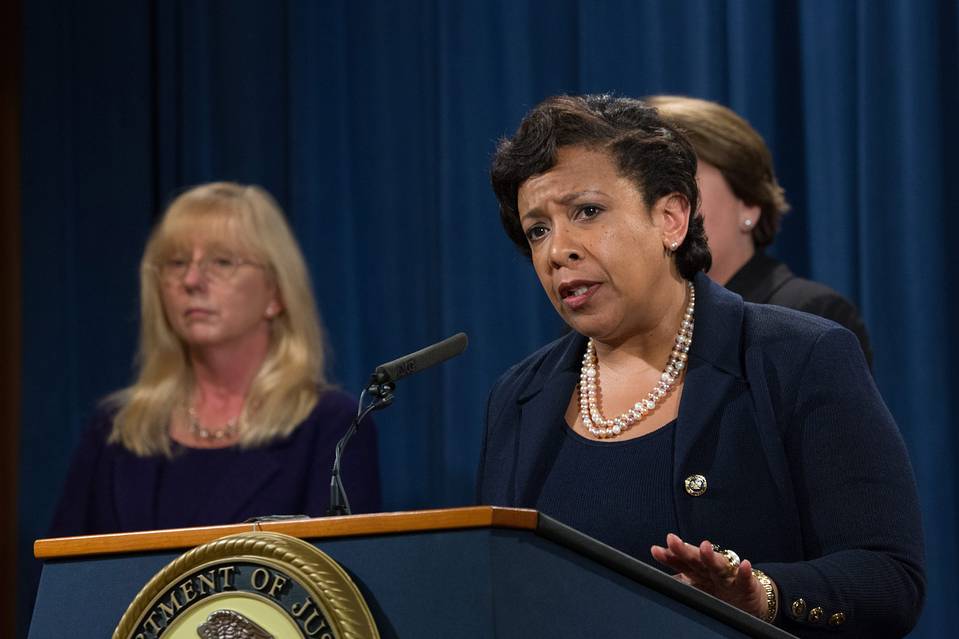WSJ Reveals China Gained M'sian Deals After Promising 1MDB Bailout. Here Are 9 Key Points
The new report cited minutes from previously undisclosed meeting between Chinese and Malaysian officials in 2016.
A new report by Wall Street Journal (WSJ) has alleged that in 2016, China offered to help bail out the scandal-ridden 1Malaysia Development Berhad (1MDB) in return for lucrative projects in Malaysia
Citing minutes from previously undisclosed meetings between Malaysian and Chinese officials, the report was written by Billion Dollar Whale co-authors Tom Wright and Bradley Hope, who have been investigating the 1MDB case for years.
The duo were also the first to break the news about RM2.6 billion from 1MDB allegedly being channelled into former Malaysian PM Datuk Seri Najib Razak's personal account.
1. The negotiations were reportedly led by businessman Low Taek Jho, infamously known as Jho Low, who is also allegedly behind the "multibillion-dollar theft" of 1MDB funds
In a series of tweets, co-author Tom Wright wrote that "Beijing stood ready to assist" when Najib found himself caught up in the middle of the 1MDB scandal and needed help to end other countries' probes into the fund.
Citing current and former Malaysian officials, the report stated that Najib turned to Low "to negotiate with China to resolve the crisis", after which Low drew up plans for Malaysian meetings with Chinese officials and even attended some of the meetings.
Malaysian officials also revealed that Low is now a fugitive "living in China under Beijing's protection".
2. In one of the meetings, senior Chinese officials offered to use influence to get the US Department of Justice (DOJ) and other countries to drop their probes into 1MDB
US Attorney General Loretta Lynch delivering her remarks on 1MDB lawsuits during a press conference at the Department of Justice on 20 July 2016.
Image via European Press Photo Agency / Wall Street JournalIn a meeting on 29 June 2016, Sun Lijun - then head of China’s domestic-security force - promised to "leverage" China's influence on other nations to stop investigations into allegations of kleptocracy in regards to 1MDB.
However, the US DOJ continued with their investigation, as did countries like Singapore and Switzerland.
3. The Chinese also offered to bug the homes and offices of Hong Kong-based WSJ reporters who were investigating 1MDB to find out who they were getting information from
According to a summary of the aforementioned meeting, Sun confirmed that the Chinese government was running surveillance on the WSJ office in Hong Kong at Malaysia's request, including "full scale residence/office/device tapping, computer/phone/web data retrieval, and full operational surveillance".
4. In return for their help, Low offered lucrative railway and pipeline deals to Chinese state firms, which China saw as an opportunity to deepen their One Belt, One Road infrastructure program
Former Malaysian Prime Minister Najib Razak, third from left, reviewing a model of a railway China agreed to build in 2017.
Image via Associated PressDocuments reviewed by WSJ revealed a proposal by Malaysian officials to have Chinese state companies build two large projects - the RM65 billion East Coast Rail Link and the RM10 billion Trans Sabah Gas Pipeline.
The projects was also supposed to be funded by Chinese banks.
5. There were plans to finance the projects at "above-market values" in order to generate excess cash to pay for "other needs"
"In the meetings, participants openly discussed how the Malaysian infrastructure projects — a railroad and gas pipelines — would be overvalued, creating excess cash to pay 1MDB debt, bribes and more," Wright tweeted.
The WSJ report noted that investigators from the current government believe that some of the money also helped to finance Najib's political activities leading up to the 14th General Elections (GE14).
6. Two months after the meetings, Najib went to Beijing and signed USD34 billion (RM139.77 billion) of rail, pipeline, and other deals with Chinese state companies
Najib launching the ECRL project at a groundbreaking in Kota SAS, Kuantan, in August 2017.
Image via New Straits TimesAccording to WSJ, the projects were to be funded by Chinese banks and built by Chinese workers.
Combined with other existing projects, the deals made Malaysia the second biggest recipient of One Belt, One Road funding after Pakistan.
7. WSJ claimed that Najib also held secret talks with Chinese leadership to let Chinese navy ships dock at two Malaysian ports, but the discussion fell through
Wright noted that it would have been a significant concession to Beijing, as Malaysia has "long been wary of China's territorial ambitions in the South China Sea".
8. The report noted that Chinese officials have declined to comment on the findings, although China's Foreign Ministry denied that money in the One Belt, One Road program was used to bail out 1MDB
According to WSJ, China's Foreign Ministry said that nations would not welcome the program as they have if it carried the financial and geopolitical risks asserted by critics.
9. Current Malaysian Prime Minister Tun Dr. Mahathir Mohamad has put the China-Malaysia projects on hold after Pakatan Harapan took over the government in May 2018
A tunnel approach for the RM65 billion rail link China agreed to build for Malaysia.
Image via Joshua Paul / Wall Street JournalWSJ noted that Mahathir is negotiating with Beijing over potential new terms for the railroad project and is also seeking to extradite Jho Low. The report also suggested that Mahathir is expected to cancel the pipeline deal.





